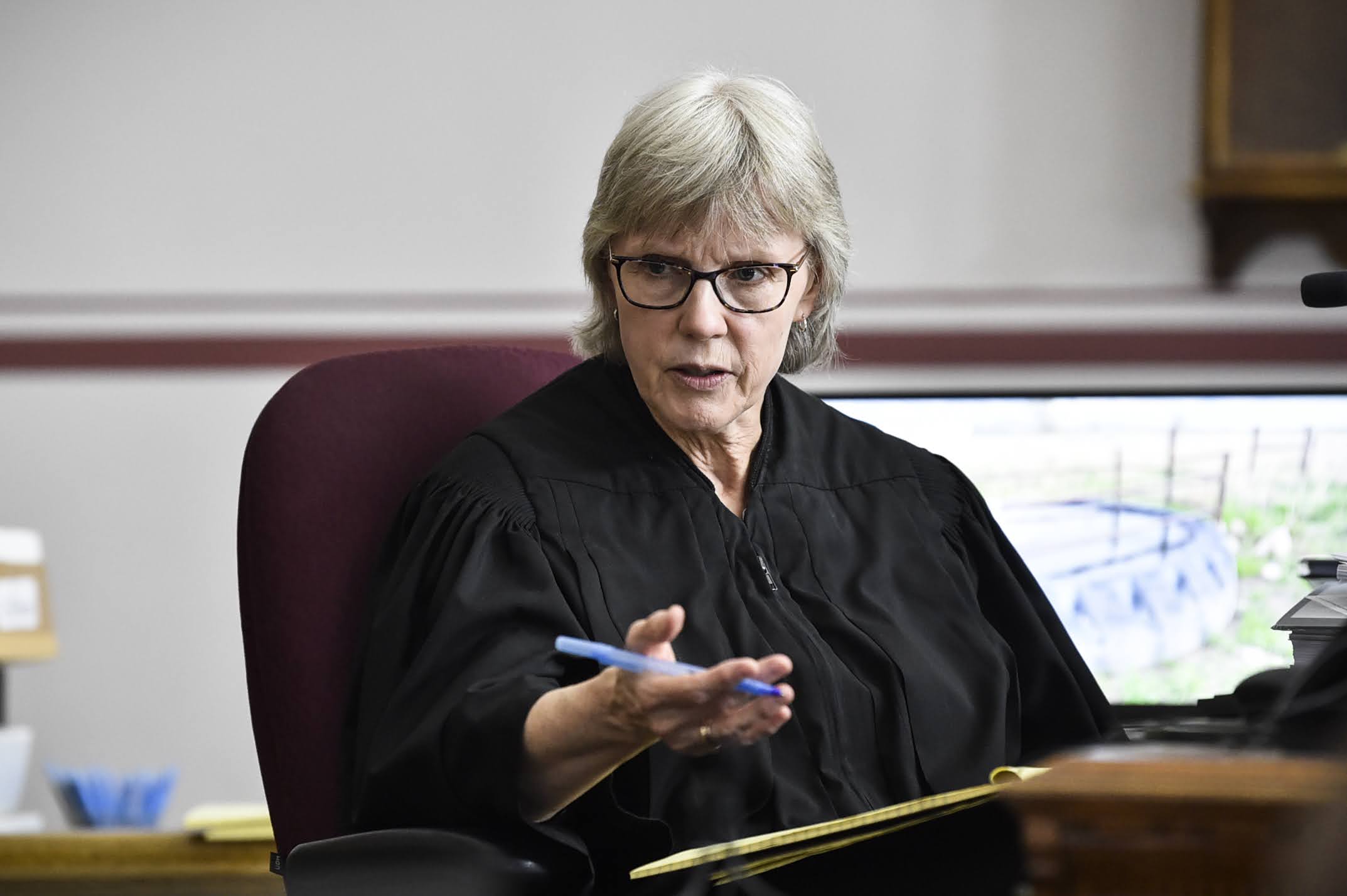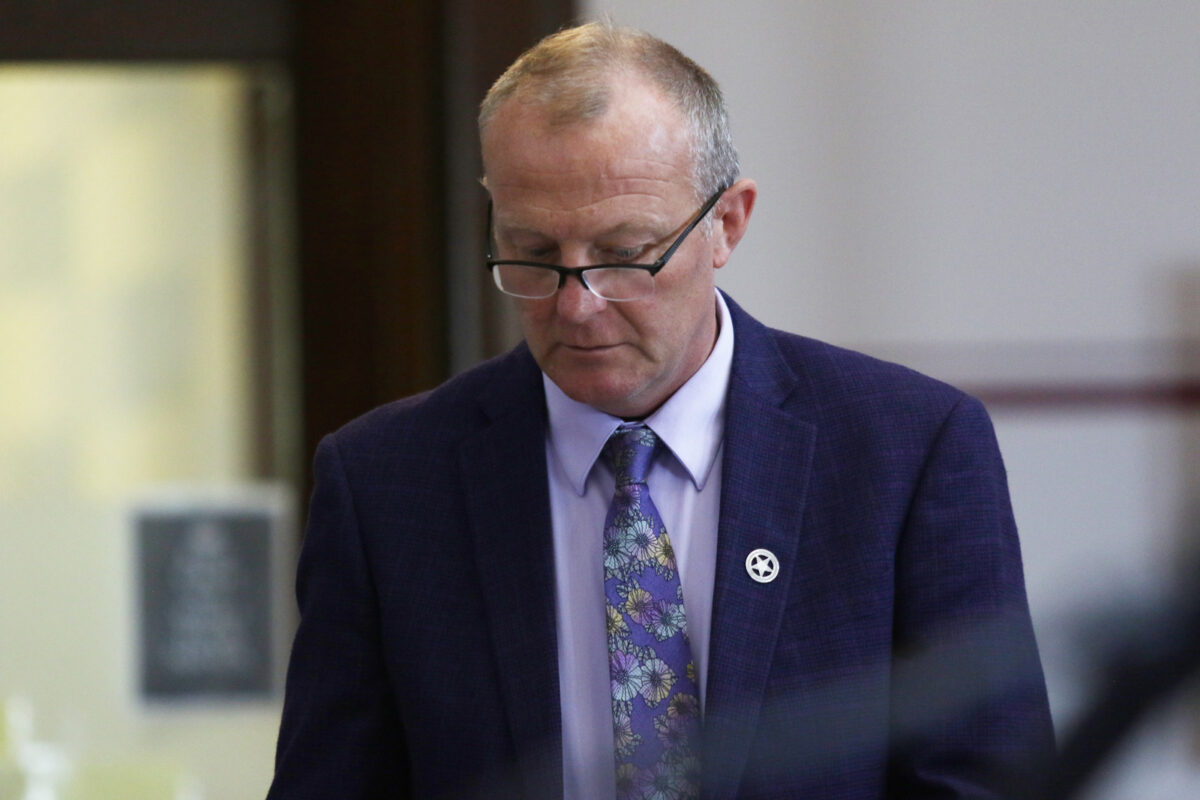Climate Expert: ‘The Harm Will Get Worse’
Scientific testimony figures prominently into second day of youth-led constitutional climate trial Held v. Montana
By Micah Drew
HELENA — Attorneys representing 16 youth plaintiffs in a constitutional climate-change lawsuit against the state of Montana on Tuesday morning presented testimony from Cathy Whitlock, an internationally renowned Earth scientist who told a Helena courtroom how the state’s steady temperature increase will affect future generations.
Introduced as an expert witness for the plaintiffs at the outset of the landmark trial’s second day, Whitlock drew a connection between Montana’s warming climate and the harm alleged by the youth plaintiffs, who say their constitutional right to a “clean and healthful environment” has been violated by the state’s practice of promoting and permitting the fossil fuel industry, contributing to climate change through greenhouse gas emissions.
“The climate science is clear there’s an urgent problem,” Whitlock said during the second day of proceedings before Lewis and Clark County District Court Judge Kathy Seeley, describing the increase of severe drought, major flood events and more frequent and intense wildfires, stating “the harm will get worse.”
“Montana’s actions to promote the utilization and development of fossil fuels are inconsistent with the need to reduce emissions to stabilize the climate system,” Whitlock continued. “These ongoing actions can harm our children and future generations including the 16 youth plaintiffs. And they will be penalized as far into the future as we can imagine.”
The bench trial for the Held v. Montana case opened yesterday with testimony from three of the 16 youth plaintiffs bringing the lawsuit, as well as two expert witnesses.
In Whitlock’s testimony on Tuesday, she outlined Montana’s historical climate trends and cited projections for the future under scenarios in which there is no mitigation of greenhouse gases emissions, a known contributing factor to global warming.
“Montana is getting warmer, and the rate of warming is increasing,” Whitlock said during direct examination by plaintiffs’ attorney Phil Gregory.

Citing the 2017 Montana Climate Assessment she co-authored, Whitlock stated that temperatures in the state have been trending upwards by roughly 0.2 degrees Fahrenheit per decade since 1900, but in recent decades that rate has increased to close to 0.5 degrees Fahrenheit per decade in some regions of the state. Whitlock said Montana’s warming rate exceeds the national average due to the state’s high elevation, northern latitude and distance from the ocean. Under the most extreme projections of global carbon dioxide (CO2) concentrations, regions of Montana could see the number of days above 90 degrees Fahrenheit increase by up to 50 days, she said, drawing a distinction between weather patterns and climate trends.
“Weather determines what you reach for in your closet and what you wear that day,” Whitlock said. “Climate on the other hand is the average of weather… if you think of what you wear as the weather, the climate is all the clothes in your closet.”
Whitlock also testified to Montana’s declining snowpack in recent decades, as well as changing precipitation trends. While data shows the annual precipitation levels in the state haven’t significantly varied over the decades, the type and timing have, she said, with drier winters and summers and wetter springs and falls.
The combination of declining snowpack and drier summers can lead to widespread drought and more intense wildfire seasons, a combination Whitlock said Montana experienced in 2017 when fires burned 4.8 million acres of land and led to $2.6 billion in agricultural losses.
While Whitlock admitted there were some upsides to a warming climate, including a longer growing season and better conditions for certain crops such as cantaloupe, she believes the negatives far outweigh the positives.
Representing the state in its defense, attorney Thane Johnson conducted the cross-examination of Whitlock with a line of questioning aimed at casting doubt on the myriad research studies Whitlock presented.

During the cross-examination, Johnson pushed back against annual measurements of snowpack in Montana, taken on April 1 each year, as not being indicative of annual snowfall. He added that such data, which Whitlock said indicated signs of drought in northwest Montana this spring, also doesn’t account for snowfall later in the season.
In a line of questioning about Montana’s energy transition, Johnson asked Whitlock whether the state had the capacity to power its transportation grid with renewable energy, including whether it could meet the energy demands of agricultural equipment in rural areas.
While admitting she was not an expert on energy transition, Whitlock said the state’s current energy portfolio and infrastructure should not limit a statewide pivot away from greenhouse gas emissions.
“I think this is a very exciting time to be living in because there’s so much change going on across Montana and the country,” she said.
Throughout questioning, Whitlock repeatedly emphasized that every ton of CO2 emitted contributes to the destabilization of the climate, and Montana needs to do its part.
“The only solution is swift decarbonization of our energy system and immediate efforts to protect our hydrosphere and biosphere,” she said. “Dr. Running and I have been warning against the dangers posed by climate change and fossil fuels for decades and yet Montana continues to aggressively pursue an expansion of fossil fuel utilization and production. There’s little time remaining to avoid locking us into irreversible climate impacts.”